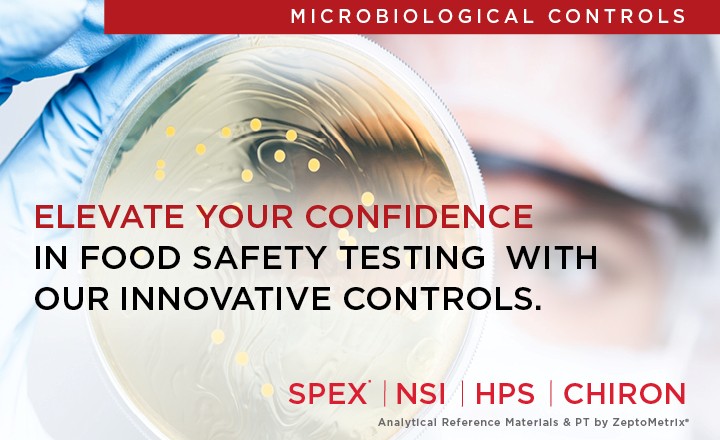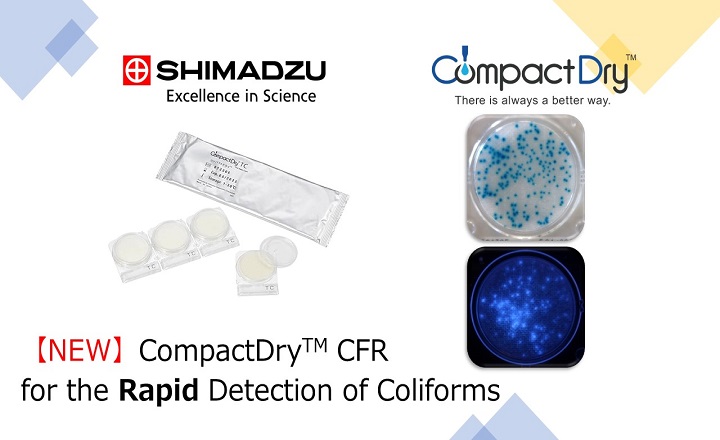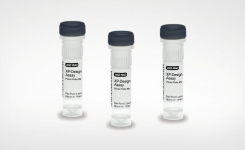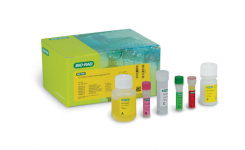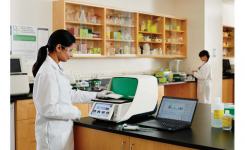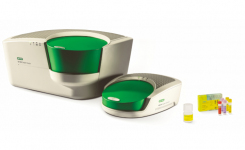Bio-Rad is pleased to announce that RAPID’B.cereus chromogenic media has received the NF VALIDATION certificate according to ISO 16140-2 by AFNOR certification under the reference number BRD 07/26–03/19. RAPID’B.cereus is validated for the enumeration of all Bacillus cereus group in dairy products, ready-to-eat and ready-to-reheat products, and vegetables.
The new dehydrated format of the RAPID’B.cereus is now available. This format is composed of a 500 g dehydrated base and 2 supplements. Download our new flyer for more information.
The Bacillus cereus group comprises prolific organisms that are widely distributed in the environment. Some species of this group can be pathogenic to humans and/or animals, but only B. cereus sensu stricto and B. cytotoxicus have been described as food poisoning agents and present a risk for human health. Thus, B. cereus is considered as a “process hygiene criteria” (Quality Indicator) by different national or international regulations or professional federations and should be quantified in different food matrices.
The ISO standard method (ISO 7932) for enumeration of B. cereus uses Mannitol Egg Yolk Polymyxin (MYP). Food matrices with significant background flora, like spices or raw vegetables, are challenging samples for MYP media and making the enumeration of B. cereus most of the time fastidious. In contrary, agar media having a too high selectivity do not allow the growth of sensitive B. cereus strains like B. cytotoxicus and result in an underestimated enumeration of the targeted bacteria. Finding a good compromise between the needs of selectivity and sensitivity is always a balancing exercise. It is exactly what the new chromogenic media developed by Bio-Rad achieves.
RAPID’B.cereus is the newest edition to the RAPID chromogenic media family. Based on a chromogenic principle and the detection of phospholipase activity, it allows the detection and the enumeration of B. cereus strains. B. cereus colonies that appear red surrounded with an opaque halo. The selected nutritive mixture permits optimal growth of all the members of the B. cereus group in less than 24 hr and no confirmation step is required. At the same time, the background flora is inhibited by the selective mixture contained in the agar, even when highly contaminated matrices are tested. This selective mixture also prevents the spreading of rhizoid colonies like B. mycoides. The delicate balance of selective and nutritive agents also allows for clear enumeration of the sensitive B. cytotoxicus. RAPID’B.cereus gives users confidence that they are enumerating all pathogenic B. cereus strains.
For more flexibility, RAPID’B.cereus agar is available as ready-to-use Petri dishes and 500 g dehydrated medium with supplements to allow the use of either a plate surface inoculation protocol or pour plate protocol. In order to optimize laboratory workflow, the plates can be stored at 2–8 °C for 72 hr prior to the reading step.



